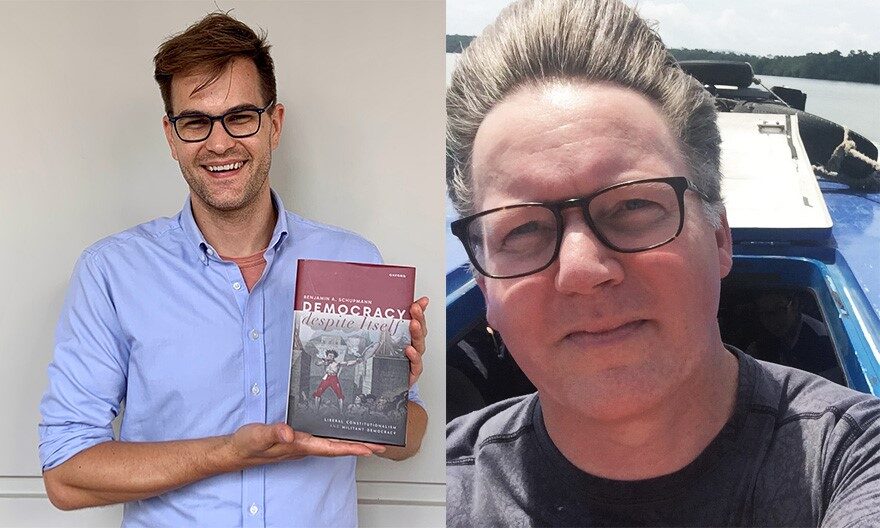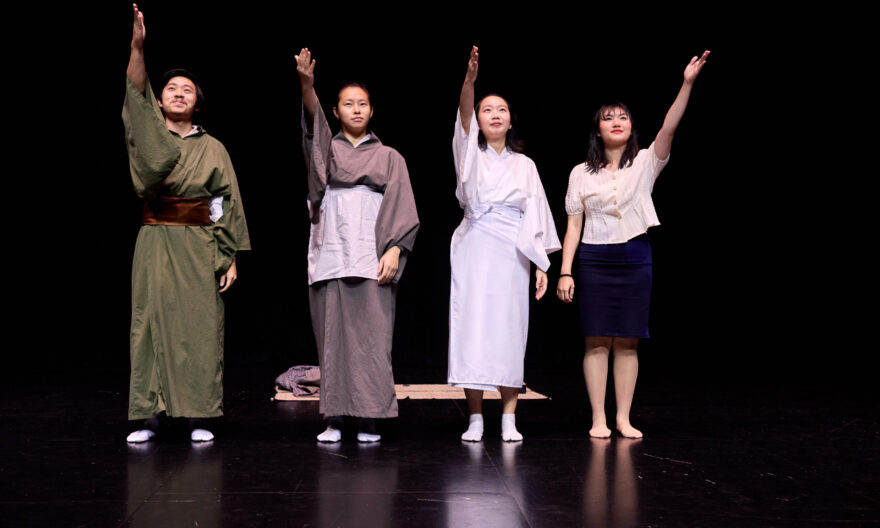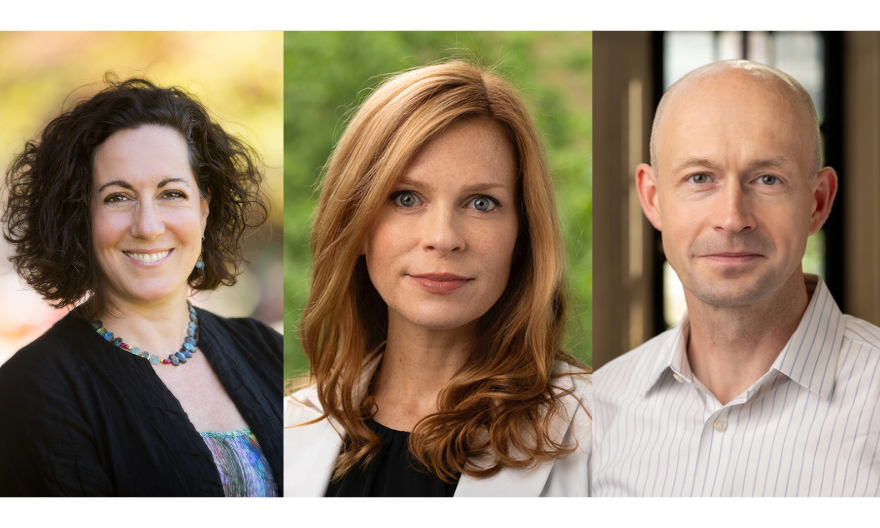Capstones 2023: Seniors complete their Yale-NUS experience with a final year project
Their capstones explore topics such as star formations, Peranakan heritage, and assistance dogs in Singapore
 Katrina conducting field work at an Assistance Dog advocacy event in Singapore. Image provided by Katrina Jacinto for Yale-NUS College.
Katrina conducting field work at an Assistance Dog advocacy event in Singapore. Image provided by Katrina Jacinto for Yale-NUS College.
At Yale-NUS College, final year students work on a year-long, self-directed capstone project under the close guidance of a faculty member. The capstone can be an in-depth research, experiential, or creative project related to the student’s area of interest.
Katrina Jacinto (Class of 2023), an Anthropology major, embarked on her capstone project ‘Fleshy, Furry Infrastructure: In(ter)dependence and Assistance Dog Advocacy in Singapore’ as she was keen to put her interest in critical disability studies in dialogue with anthropology.
Katrina elaborated, “In my project, I research advocacy for assistance dogs in Singapore through the work of K9Assistance, a local charity. I use this fieldwork to consider what independence and interdependence mean for disabled people as well as non-human animals.”
In her research, Katrina also drew on eco-crip theory, which combines disability studies with environmental humanities. Ethnographic fieldwork is a vital part of anthropology, and finding interlocutors proved to be a challenge for Katrina, especially since she was working with non-human beings.
“I volunteered with K9Assistance for a few months, and I feel very lucky that they were so open and interested in working with me – I even invited them to visit Yale-NUS to share their work! Doing multispecies ethnography was also an enriching experience – I started noticing the differences between individual dogs, rather than seeing all of them as a homogenous group, and recognising this agency is an important process in anthropology.”
Katrina shared how she was especially influenced by former Lecturer of Humanities (Literature) Kevin Goldstein’s ‘Disability and the Arts’ course as well as her anthropology professors. While Katrina hopes to get her research published in the future, she also looks forward to “continuing to advocate for Assistance Dogs and disabled handlers in Singapore”.
“Even though that’s not an academic goal, it is an important way that I want my capstone to live on.”
 Bijaya presenting his capstone findings at the International Astronomical Union (IAU) Symposium 377 in Malaysia earlier this year. Image provided by Bijaya Luitel.
Bijaya presenting his capstone findings at the International Astronomical Union (IAU) Symposium 377 in Malaysia earlier this year. Image provided by Bijaya Luitel.
For Bijaya Luitel (Class of 2023), a Physical Sciences major, his capstone project was a culmination of nearly four years of research on star formations in early universe galaxies. Bijaya first became interested in this topic while working with Assistant Professor of Science (Physics) Chelsea Sharon on a Student Research Project (SRP) to make a molecular hydrogen gas image for a galaxy during his first-year semester break.
Bijaya shared, “Hydrogen gas is an important indicator when investigating how stars form. We realised that the project was not feasible due to the limitations of the data we obtained, and when other students worked on more galaxies in subsequent SRPs, we found that it was a general trend across a few galaxies. That’s where my capstone began – by trying to understand whether the problems with creating the images were caused by the data, inherent properties of the galaxies themselves, or some combination of the two.”
In his capstone project, Bijaya examines why it is challenging to observe hydrogen gas in galaxies that are over 10 billion years old and what scientists can do to overcome this problem.
“In terms of the science, the most challenging part was working with data from different telescopes,” he noted, explaining that different telescopes had their own special quirks that took time to adapt to.
Bijaya expressed his gratitude towards Asst Prof Chelsea Sharon, who enabled him to conduct academic research and present at research conferences such as the International Astronomical Union (IAU) Symposium 377 in Malaysia and the Institute of Physics (IPS) Meeting in Singapore.

 Images taken from Kristen’s piece, ‘Heirloom’. Image provided by Kristen Oliveiro.
Images taken from Kristen’s piece, ‘Heirloom’. Image provided by Kristen Oliveiro.
Kristen Oliveiro (Class of 2023), an Arts and Humanities major, submitted a performance art installation titled ‘Heirloom’ for her capstone project.
In her project, Kristen explored her interests in the culinary arts and her Nonya heritage through Peranakan cooking with her family and other members of the Nonya community. The installation allowed her to reflect both on her Peranakan-Chinese identity and relationship with her mother, as well as broader themes surrounding heritage including cultural inheritance and contemporising cultural practice.
She shared, “I was motivated to explore these issues because I find that a lot of the portrayals of Peranakans in Singapore are commodified and even reductive. As such, I wanted to challenge those portrayals by proposing my own depiction of Peranakan culture that does not rely on images one might typically associate with Peranakans.”
Kristen explained that she wanted to engage in a creative capstone to expand her knowledge of Practice-as-Research methodology, where one gains knowledge from doing something rather than thinking or reading about it.
“To be able to learn from developing the performance, I had to be really reflective about my creative process and choices.”
Although this was a new experience for Kristen, she received strong support from her academic advisors, Lecturer of Humanities (Theatre) Jonathan Vandenberg and NUS Associate Professor Maiya Murphy. Kristen also shared that ‘Heirloom’ allowed her to revisit her first ever art project at Yale-NUS, which was a recipe book of Peranakan recipes, and helped develop her artistic practice further.
This is the first article of our two-part series on Capstone 2023. Watch this space for the second article sharing the capstone experiences of the Class of 2023!




